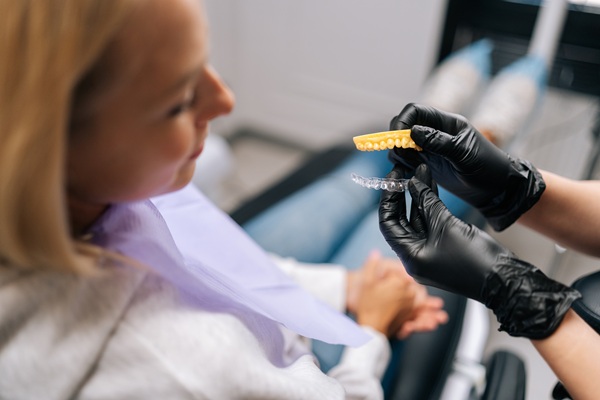An Emergency Dentist Can Help Save Your Teeth

If the services of an emergency dentist are required, it is probably due to pain. Sudden or severe pain can spell bad news when it comes to the mouth, especially if waking up in the middle of the night or on the weekend with it. Some conditions need immediate attention to stop the problem from getting worse or even spreading. Find out in what situations a dentist who practices in the off-hours can help save the mouth and teeth from further damage.
Times an emergency dentist can help
Dental emergencies, unfortunately, do not always occur during regular business hours. Even if they do, a personal dentist may not be able to rework the schedule that is typically packed for months before. What constitutes a dental emergency? Here are a couple of examples.
Knocked out tooth
Teeth are susceptible to getting knocked out in a few different ways, but sports and falls are the most common. Children and adults alike can experience this dental emergency at any time. If a tooth gets knocked out, all hope is not lost. According to the American Association of Endodontists, there is a chance that it can be re-implanted, and the quicker a person acts in getting to the dentist, the better.
Place the tooth back in the socket if possible, and if not, keep it moist in a container of milk. Get to the emergency dentist within an hour of the incident to give the tooth the best chance at being saved. The dentist will clean the socket, reposition the tooth, and use a splint to keep in in place until a regular practitioner can perform a root canal. If all goes well, the tooth will be saved.
Cracked tooth
Biting down on something hard can cause a crack in a tooth. While many times there is no pain or even knowledge that a crack has formed until the tongue finds it, other times the pain will be severe and intense. This could indicate that the crack is deep enough to have reached the nerve, which is the reason for the pain. A trip to an emergency dental clinic can help alleviate the pain. The dentist can assess the damage and prescribe medication, most likely antibiotics and pain medication. If necessary, the dentist will clean out the cracked tooth and administer antibiotics directly to the source to ensure there is no infection.
Infection under the gum
Waking up is unpleasant if there is a bubble or blister that has formed on the gum during the night. The reasons for this vary, but the result is a painful sore called an abscess. The best way to treat this condition is with antibiotics and a good cleaning of the area. Likely, bacteria slipped in through the gums or a crack in the tooth, making its way to the nerves and causing the infection. Allowing it to continue is painful and may lead to the need for a root canal or eventual tooth removal.
Conclusion
An emergency dentist can intervene and provide care when issues come up. This intervention can stop an infection and perhaps even save a tooth from being lost.
Are you considering an emergency dentist in the Huntsville area? Get more information at https://www.yourhuntsvilledentist.com
Check out what others are saying about our services on Yelp: Read our Yelp reviews.
Recent Posts
Teeth whitening is a popular cosmetic dental treatment. This procedure can effectively brighten your smile by addressing discoloration and stains. By understanding how teeth whitening targets stains, you can see how the process can restore your teeth to a cleaner and more youthful appearance.Tooth discoloration can occur for several reasons, and identifying the source is…
Invisalign® provides a discreet and effective alternative to traditional braces, but treatment success depends on the provider's expertise. Choosing the best Invisalign dentist ensures precise treatment planning, optimal results, and a smooth experience. This starts with researching qualifications, experience, and patient reviews to help identify a dentist who can deliver the care suited to your…
Maintaining a robust oral hygiene routine is one of the most effective ways to promote a bright, healthy smile. A general dentist emphasizes the importance of both daily and professional care in maintaining oral health. Here are some helpful tips to help you maintain your smile between dental visits.A general dentist typically recommends brushing at…
Denture wearers may develop a condition known as stomatitis, an inflammation of the gums and soft tissues underneath dentures. It is most common in people who wear full or partial dentures for long periods, especially those who leave their dentures in while sleeping. Many people do not even realize they have it because it often…


